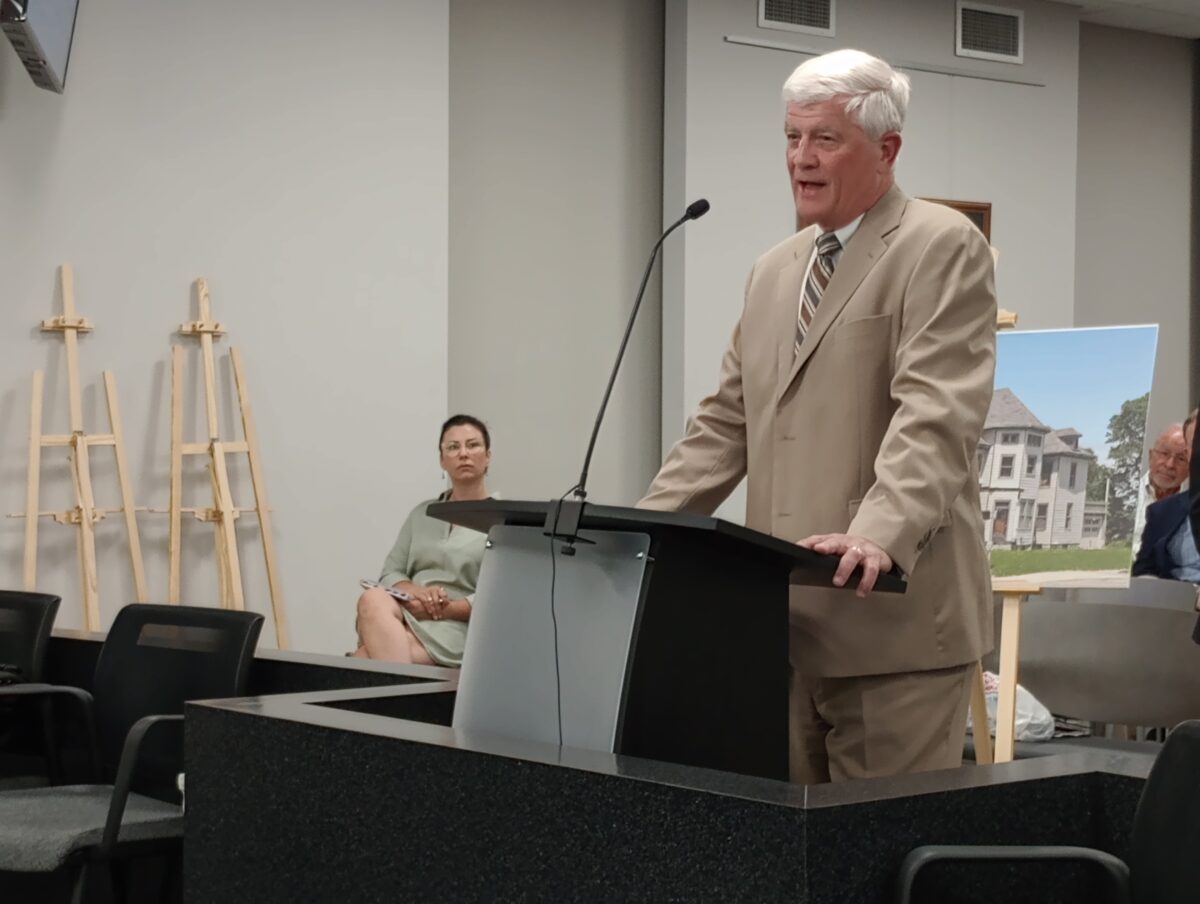An insurance agent addressed Richmond Common Council about what he called a “horrendous problem,” blight.
Richard Lake said Richmond residents share the blame for the city’s blight; however, he asked council members during the June 5 meeting to solve the problem he said leads to drug use, crime, generational poverty and declining property values.
“The people of the city of Richmond have tolerated, accepted, made excuses, pointed fingers at everybody but themselves, so we are reaping the tolerance,” said Lake, who had previously spoken to the council about the same issue.
After the meeting, Mayor Dave Snow said that while Lake focused on one issue, the city also has positives to consider, such as a 2.7% unemployment rate, $400 million investments in the Midwest Industrial Park, development of hundreds of new jobs and tens of millions of dollars in infrastructure investment.
“We’re always going to have people to find the bad in the city, but I happen to see much more good,” Snow said. “Richmond is a beautiful, historic and vibrant city that is on the rise, and that’s what we’re going to keep working toward every day.”
Lake said that visitors see buildings with boarded up or missing windows when entering the city and that the blighted properties are unfair to residents who work to maintain their properties. He also asserted that blighted properties standing in areas near downtown would not be permitted to remain in the city’s wealthier neighborhoods.
“The people in those areas don’t have as much of a voice, and some of them are poor,” Lake said. “And that’s just wrong. It’s absolutely wrong to treat them like that.”
Grant funding helped the city’s Blight Elimination Program demolition more than 200 blighted properties. The city continues to clean properties through its Code Enforcement department and remove dilapidated structures through its Unsafe Building Commission, spending more than $1.2 million on cleanups and demolitions the past three years. Board of Public Works and Safety minutes show the city has committed more than $59,000 this year to cleanup and demolition efforts on residential properties.
Lake said the city should seek additional grant funding to battle blight, spend American Rescue Plan Act dollars on the issue and implement a food and beverage tax to raise even more funds. Blight elimination is among the projects proposed during the Hoosier Enduring Legacy Program process for the city’s ARPA dollars.
“Our budget sessions are coming up,” Snow said. “We’ll continue to budget for Unsafe Building Commission dollars and other ways that we can fund, partnering with the state and having internal funding to address these issues.”
Using easels, Lake showed large photographs of the former Crain Sanitarium, a neighboring East Main Street building and a downtown-area building. All were boarded up. He said he wanted the elected officials present to lock themselves in a room and vow not to emerge until they solved the blight problem.
Lake received an ovation from residents who attended the meeting.
“Thank you so much for your passion for the blight,” said council member Lucinda Wright. “I commend you, and I thank you for what you’ve said here today.”
A version of this article appeared in the June 14 2023 print edition of the Western Wayne News.

